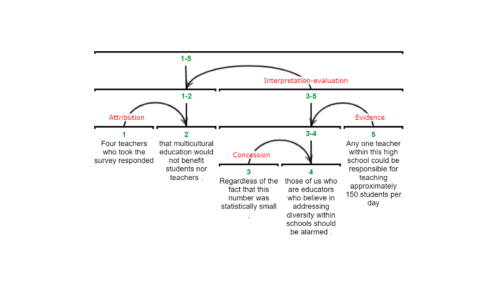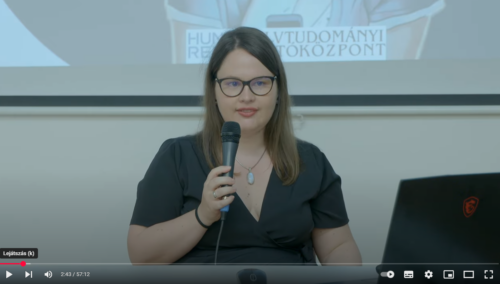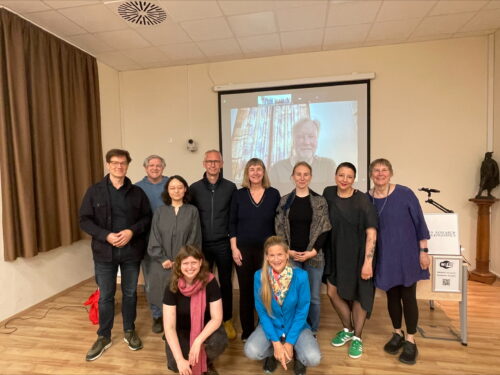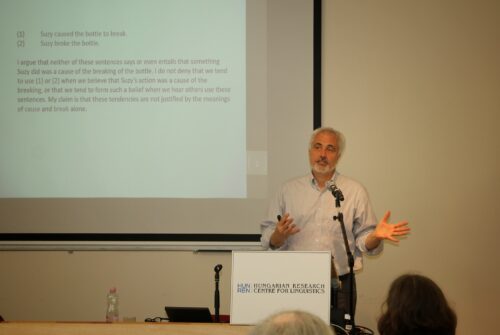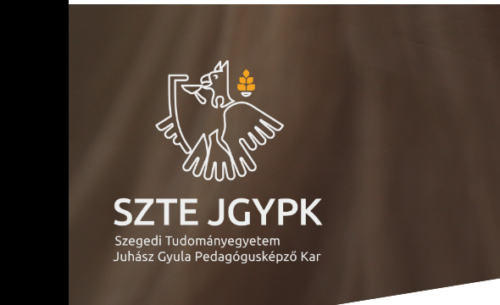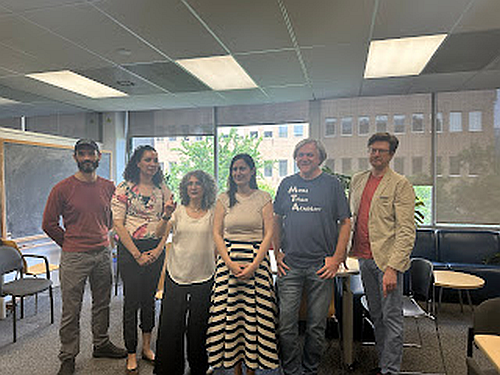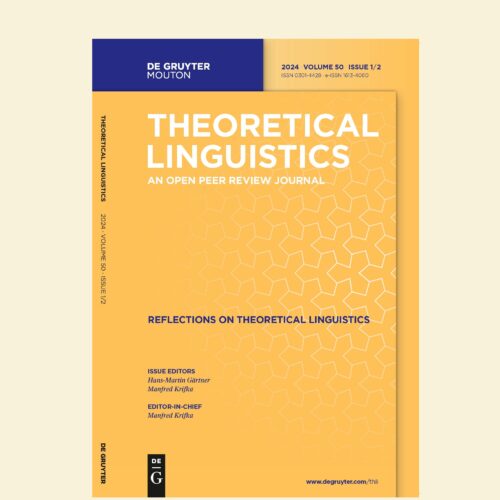Grammar and Pragmatics Research Group•Research area
 | Research group leader: Hans-Martin Gärtner, PhD Email: hans-martin.gaertner@nytud.elte.hu Phone: +36 (1) 342-9372/6093 |
Our research at the meeting points of grammar and pragmatics explores the connection between sentence types (in particular, interrogatives, conditionals, hortatives, special and minor types, fragments) and speech acts (in particular, question acts, commissives, indirectness, explicit performatives, joint commitment and bias). Special attention is paid to aspects of clause combining (embedded root phenomena, mood choice, finiteness), and additional diagnostic phenomena (e.g. particles and negation). Various discourse/usage modes are taken into account (e.g. legal language, religious language, dialogue, signs/gestures).
One stream of our research studies fundamental theoretical issues regarding the core properties of the type–mood–force nexus. The second stream of our research studies the interaction of sentence types and speech acts in Hungarian, with particular attention to interrogatives and questions, by collecting and processing experimental and corpus data and providing formal semantic-pragmatic analyses. The third stream of our research focuses on interactions between sentence types and speech acts in various discourse/usage modes, including legal and religious language. Some of the above research questions are being investigated in cooperation with the Phonetic Research Group of the Institute.
The results of our research on legal language have a direct relevance to legal practice and legal education. We have provided a complex analysis of strategies used by judges for the avoidance of influencing in the course of witness questioning, with special attention to question bias. By showing how judges actively avoid reflecting their bias and how they motivate witnesses to cooperate the study also contributes to strengthening trust in the judicial system. The results of ongoing work on linguistic aspects of legally relevant threats will be able to assist courts in interpreting threat utterances accurately, and investigating authorities in finding anonymous threateners in cases where there is no specific suspect. These findings may even form the basis for applications that filter threatening messages.
Regarding religious language we currently study the use of biased questions in Bible translations to encode the speaker’s thoughts, expectations, and to realise rhetorical or pedagogical questions. Societal relevance derives from the fact that different grammatical forms allow different interpretative paths leading to different “implied theologies” having an influence on religious practice.
Grammar and Pragmatics Research Group•Staff

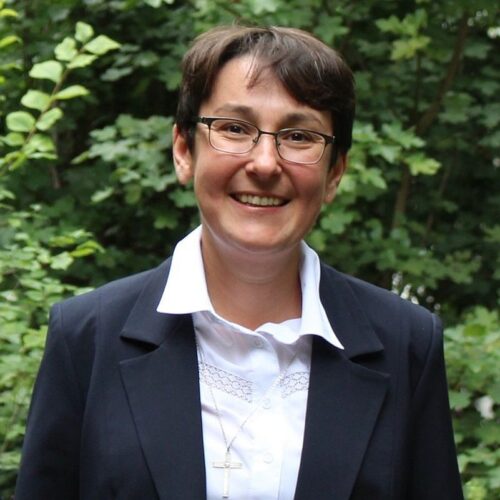

Institute for General and Hungarian Linguistics

Grammar and Pragmatics Research Group•Research
From sentence types to speech acts and beyond
Our research at the meeting points of grammar and pragmatics explores the connection between sentence types (in particular, interrogatives, conditionals, hortatives, special and minor types, fragments) and speech acts (in particular, question acts, commissives, indirectness, explicit performatives, joint commitment and bias). Special attention is paid to aspects of clause combining (embedded root phenomena, mood choice, finiteness), and additional diagnostic phenomena (e.g. particles and negatio ...
Grammar and Pragmatics Research Group•News
Grammar and Pragmatics Research Group•Events

Issues in the Study of Icelandic. The Húnaland Meeting

Two sides of language comprehension

Ordinary causal talk
![Szabálytalan [ʃp]70 ‒ Siptár Péter köszöntése 70. születésnapja alkalmából Szabálytalan [ʃp]70 ‒ Siptár Péter köszöntése 70. születésnapja alkalmából](https://preprod.nytud.hu/wp-content/uploads/2024/11/sipi2-500x334.jpg)
Szabálytalan [ʃp]70 ‒ Siptár Péter köszöntése 70. születésnapja alkalmából
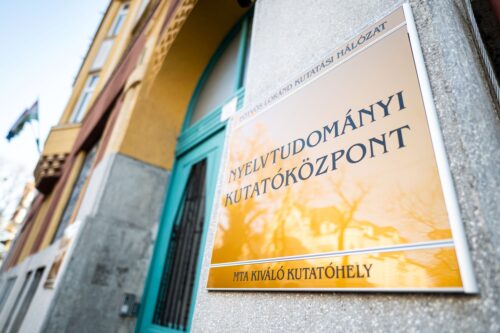
Tackling the Type-Mood-Force Nexus Venice-Style
